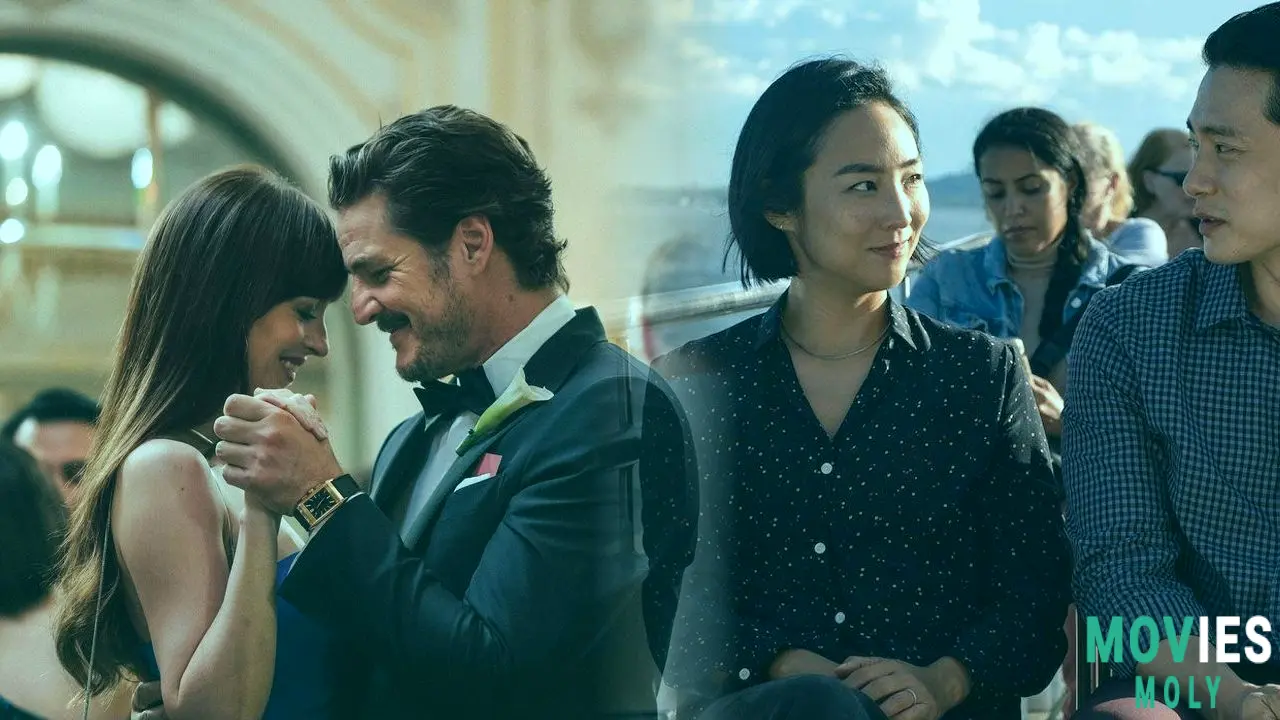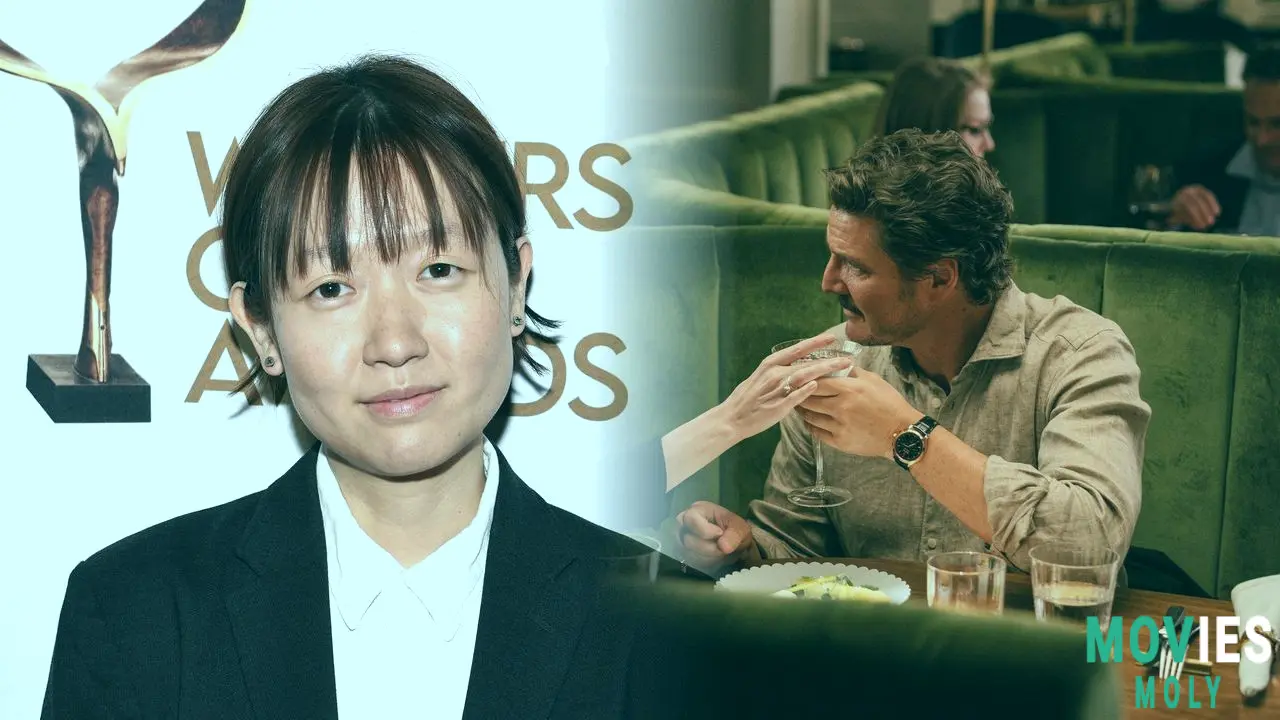Celine Song has swiftly become a household name in the movie industry. Following the success of her film Past Lives, she released Materialists. She is currently working on an entirely other project: an HBO series titled "Damage." This episode will introduce us to the competitive world of E-Sports. It appears to be a significant departure for Song, whose first two films were frequently referred to as love stories, even if she does not quite agree with that description. This new series demonstrates her openness to try different types of narrative.
Song confirmed to Variety that she is producing this series for HBO. She didn't reveal too many particular narrative specifics. However, we do have the official description. It describes a gaming prodigy joining a professional E-Sports squad. There, an older player who has a tough past with her takes her under his wing. Song will write, direct, and executive produce the show. She will also collaborate with Craig Mazin. He is best known for shows such as The Last of Us and Chernobyl. A24, the production company behind both of Song's films, is also collaborating with HBO on this series. This is a formidable crew, and I am extremely excited to see what they will produce.
Her past films, particularly Materialists, have aroused much debate about how they combine many forms of tales. So, while "Damage" feels like a major move in a new direction, it makes reasonable that Song would take on a world as complicated and dramatic as E-Sports. It's a world of enormous stakes, fierce rivalry, and strong personal connections. This location allows for an abundance of character-driven stories, which Song excels at.
Celine Song's Matchmaking Days: The Surprising Inspiration for Her Film MaterialistsHow a Playwright's Need for a Day Job Led to Deep Insights on Modern Dating
Celine Song found herself in a predicament that many artists may relate to over ten years before she made her big screen debut with Past Lives. She was a playwright from New York City. She, like everyone else, needed to pay bills and make rent. She only needed a day job. Song rapidly found that in a city full with dreamers, many of whom had side hustles, most day jobs were quite competitive. They were formerly occupied by highly qualified individuals. She recalled, "I couldn't become a barista since I didn't have ten years of experience. I couldn't work in retail and wasn't being recruited for anything. So I felt a little desperate." This is something that many of us can relate to. Finding job in a crowded city can be more difficult than you think.
A fortunate encounter at a party opened the door for her. Song ended up speaking with someone who worked in matchmaking. She made the connection, applied, and was interviewed. She thereafter worked as a matchmaker for six months. This encounter profoundly altered her life. It helped shape the heart of her most recent romance, Materialists. She learned more about individuals at this phase of her life than any other. (She eventually resigned because she was having much too much fun. "I could feel myself wanting to become lifelong matchmaker," she reported with a grin. While she did not stay long enough to watch any relationships progress past the second date, the knowledge she learned via matching is evident throughout Materialists. It's a brilliant, honest romance film. It demonstrates Song's storytelling ability, with acute observations and genuine character feelings.
The plot follows Lucy (Dakota Johnson), a matchmaker, as she leads her clients through the city's tough dating environment. Her employment connects her with eligible bachelor Harry (Pedro Pascal). Lucy describes him as a "unicorn": tall, rich, charming, and handsome. He ticks all of her company's boxes. The difficulty is that Harry wants to date Lucy. Lucy swiftly responds that he could do better than someone in debt with less education who earns $80,000 before taxes. Lucy's ex, John (Chris Evans), is also in the picture. He works in catering and is also a struggling performer. Their relationship dissolved due of financial concerns. That event convinced Lucy that wealth was the most important quality she looked for in a man. If at all feasible, have a large quantity.
Materialists investigates the harsh realities of money and dating in the modern world.

How Personal Finances Influence Romantic Choices, Visually and Thematically
Many characters in the film think and speak in this manner. They view potential partners as a collection of data and resumes. They do not regard them as individuals with actual lives and emotions. It is difficult to reveal such hard truths. Song deserves credit for presenting them so clearly. She treads a tight line between embracing these truths and clinging to old notions like love and romanticism. She explained, "That was the movie's difficulty. And the predicament of modern folks. All I can truly say is how this situation affects me personally. What's remarkable about New York City is that it is both a city of romantics—because we are all dreaming and hoping for something—and cynics. To thrive in New York City, you must be cynical. "You must be practical and materially savvy."
One of the reasons Materialists works so effectively is Song's ability to depict passion and cynicism as opposing forces. As a matchmaker, she saw that clients often provided numerical descriptions of their perfect companion, such as their height, weight, wealth, and age. While I understood why people were asking for those things, I knew from personal experience that it is not what love is or feels like. So [creating this] film was about [achieving] a balance between the practical and the illusion of genuine love." Song does a nice job. She presents us with complex characters that she does not criticize, even in their darkest and most shallow moments. "I'm not saying the judgment isn't there. Of course, we are always assessing each other in some way," she remarked. "What feels authentic to me, however, is acknowledging where the character originates from. "Why is that character going through this?"
She explains these arguments throughout Materialists. In one of the best scenes, a flashback reveals how $25, a small sum for some but a lot for others, sparked a conflict between Lucy and John. Lucy requested to park in an expensive spot for their anniversary meal because they were running late. John insisted on locating street parking. Song acknowledged, "I had a fight with my spouse. We were both broke playwrights who never owned a car. But we had rented something. I don't think you can drive in New York City, be broke, and not have a good point about parking." This personal touch enhances the scene's realism.
On the other hand, we observe how people who have had financial difficulties and want to avoid them again are regarded as products in modern dating. Sophie (Zoë Winters), one of Lucy's key clients, states after a bad date, "I'm not a merchandise." "I am a person." According to Song, this statement provides the key to the entire film. "You're having fun until something completely dehumanizing happens. It diminishes all of us as individuals, as humanity." This is a powerful concept in the film.
Harry's leg lengthening surgery and the show's use of visual storytelling

How Materialists brings their themes to life through character choices and filming techniques.
To do honor to the film's title, materialism had to be depicted visually as well as conceptually. Design decisions were made based on the characters' financial levels. Song understood how much someone's clothes or apartment cost. There were specific numbers for goods and locations. Harry's luxurious Tribeca condo, for example, cost $12 million. She enjoyed working with her department leaders to bring these subtleties to life. Song and costume designer Katina Danabassis discussed how they would style Lucy, who started up poor but now makes decent money and wants to appear luxurious. Maybe some things from Aritzia, a trendy but economical brand, coupled with big purchases she overspent on, such as a particular purse. They also explored aging some clothes so that they appeared used. "We were like, 'Lucy definitely bought that dress at a budget store. I bet it was previously owned. Then, of course, it determines how much something like that costs when used. Then we aged certain clothes so they felt used."
The film also addresses a storyline element that has generated some discussion. About halfway through Materialists, Lucy spots a scar on Harry's leg. The audience may not understand what it implies, but Lucy does. Near the end of the film, she breaks up with Harry. She knows the perfect environment he provides is insufficient. During their graceful goodbye, he discloses something she already knew: he had leg lengthening surgery. It added six inches to his height. He and his brother both underwent the operation. Lucy makes no judgment. She claims she has also had improvements. She points at her nose and chest. She understands the difficulties of the dating scene. She has spent her career listening to clients describe their ideal spouses in really detailed terms.
Leg lengthening surgery is expensive and uncomfortable. It appears more radical than a nose job. But this isn't simply a fantasy. of 2022, GQ ran a feature about the surge of leg lengthening. It stated that a doctor in Las Vegas noticed patient numbers skyrocket. The cost of surgery ranges from $70,000 to $150,000. The issue with John's apartment was finding a New York neighborhood where he could afford a $850 rent-stabilized home. Song originally intended for it to be in Bushwick, but that changed. "My location manager said, 'Bushwick is too good now. "It's too expensive," she said, laughing. So the production chose Sunset Park for the outdoor shooting. The interior was built and painted with what Song described as "a very recognizable wall color of a bad New York City rental."
To demonstrate the financial disparity between John and Harry, several camera motions were used. Song and cinematographer Shabier Kirchner discussed this. Harry's apartment was pleasantly illuminated. John's house was more austere. Harry moved smoothly. They frequently employed a Steadicam with determined Lucy. John was fitted with a handheld style. This reflected the unsteady nature of his financially troubled life. According to Song, these decisions do not imply that having more money makes a person more materialistic. In fact, it's the opposite. "The truth is that the less you have, the more materialistic you must be, because every dollar is valuable. Money can seem like a figment of your imagination if you are extremely affluent. But for somebody who needs five more dollars to eat, money is real.”
The Broader Impact And Messages Of Celine Song's Filmmaking Style

What Audiences Can Take Away From Her Honest Portrayals of Love and Life
Throughout Materialists, there is this idea of a "non-negotiable" in relationships. This is the one thing you will not compromise on when choosing a partner. For Song, that thing is simple. "That they love me," she said. "Love is meaningless unless it’s unconditional. And that, to me, is non-negotiable.” This answer probably will not surprise anyone who has seen Materialists. The film has a proudly non-cynical ending. "What can Lucy do when she’s offered love other than saying, ‘Deal’? She is given an offer that she can’t refuse. [And that idea] is in the lyrics of the song that John and Lucy dance to, [‘That’s All’]. I love that song. My husband played it for me," she shared. This makes the movie feel even more personal.
In the end, this is the idea and feeling Song wants everyone to take from the film. “You can see the movie as a looking glass, or you can see it as a mirror. It’s personal, and the dream of this movie is for the audiences to take it personally, to let it get under their skin,” she said. “You can refuse a $12 million apartment. But [it is] a crime against yourself is to say no to love.” This powerful message sums up the film's core. It shows that despite all the modern complexities, true connection still matters most. This is what makes Song's films so special and relatable. She finds the human heart in the middle of tough truths.




